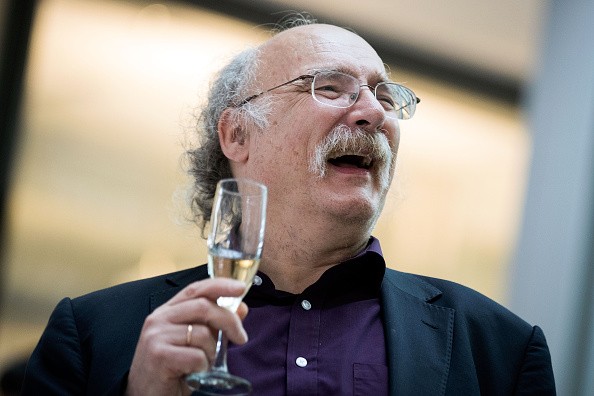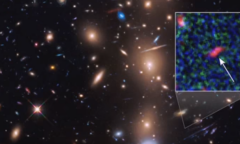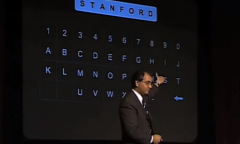By Iesha Javed, | October 10, 2016

Princeton University professor F. Duncan Haldane, who was awarded the 2016 Nobel Prize in Physics, laughs during a toast in his honor in Princeton, New Jersey.
Three British physicists have won The Nobel Prize in Physics for 2016 for their research on the exotic states of matter, which is considered to be a breakthrough in quantum physics.
David J. Thouless, F. Duncan M. Haldane, and J. Michael Kosterlitz won The Nobel Prize in Physics for 2016 last week "for theoretical discoveries of topological phase transitions and topological phases of matter."
Like Us on Facebook
The scientists, who are now working in the United States, were awarded the Nobel Prize in Physics for their research on exotic states of matter. The study into the bizarre properties of matter in extreme states explain why some materials including superconductors, superfluids, and thin magnetic films have unexpected electrical properties such as superconductivity.
The three laureates attempted to explains why in matter that is cold or thin, weird quantum forces overpower the random atomic jostling that governs everyday existence. Superconductivity, in which all electrical resistance disappears in the matter, is one instance of such an effect.
Michael S. Turner, a physicist at the University of Chicago, in an email described the study as "truly transformational, with long-term consequences both practical and fundamental. Tomorrow, the work could be used in quantum computers and have significant utilisation in electronics, materials science, and computing."
The scientists had to rely on advanced mathematical models to study "theoretical discoveries of topological phase transitions and topological phases of matter," according to the Royal Swedish Academy of Sciences in Stockholm
David J. Thouless of the University of Washington was given half of the award money of eight million Swedish kronor (about $930,000), while F. Duncan M. Haldane of Princeton University and J. Michael Kosterlitz of Brown University received the other half.
The award came as great surprise to many people, who assumed the discovery of gravitational waves this February would lead to a prize for LIGO.
-
Use of Coronavirus Pandemic Drones Raises Privacy Concerns: Drones Spread Fear, Local Officials Say

-
Coronavirus Hampers The Delivery Of Lockheed Martin F-35 Stealth Fighters For 2020

-
Instagram Speeds Up Plans to Add Account Memorialization Feature Due to COVID-19 Deaths

-
NASA: Perseverance Plans to Bring 'Mars Rock' to Earth in 2031

-
600 Dead And 3,000 In The Hospital as Iranians Believed Drinking High-Concentrations of Alcohol Can Cure The Coronavirus

-
600 Dead And 3,000 In The Hospital as Iranians Believed Drinking High-Concentrations of Alcohol Can Cure The Coronavirus

-
COVID-19: Doctors, Nurses Use Virtual Reality to Learn New Skills in Treating Coronavirus Patients











